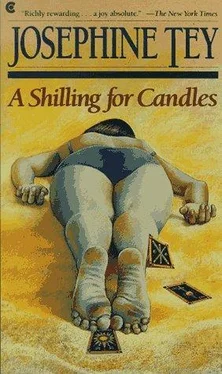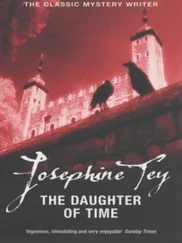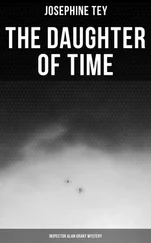Josephine Tey - A Shilling for Candles
Здесь есть возможность читать онлайн «Josephine Tey - A Shilling for Candles» весь текст электронной книги совершенно бесплатно (целиком полную версию без сокращений). В некоторых случаях можно слушать аудио, скачать через торрент в формате fb2 и присутствует краткое содержание. Год выпуска: 1936, Жанр: Классический детектив, на английском языке. Описание произведения, (предисловие) а так же отзывы посетителей доступны на портале библиотеки ЛибКат.
- Название:A Shilling for Candles
- Автор:
- Жанр:
- Год:1936
- ISBN:нет данных
- Рейтинг книги:4 / 5. Голосов: 1
-
Избранное:Добавить в избранное
- Отзывы:
-
Ваша оценка:
- 80
- 1
- 2
- 3
- 4
- 5
A Shilling for Candles: краткое содержание, описание и аннотация
Предлагаем к чтению аннотацию, описание, краткое содержание или предисловие (зависит от того, что написал сам автор книги «A Shilling for Candles»). Если вы не нашли необходимую информацию о книге — напишите в комментариях, мы постараемся отыскать её.
A Shilling for Candles — читать онлайн бесплатно полную книгу (весь текст) целиком
Ниже представлен текст книги, разбитый по страницам. Система сохранения места последней прочитанной страницы, позволяет с удобством читать онлайн бесплатно книгу «A Shilling for Candles», без необходимости каждый раз заново искать на чём Вы остановились. Поставьте закладку, и сможете в любой момент перейти на страницу, на которой закончили чтение.
Интервал:
Закладка:
Grant made the best of his way to the corner and waited, pressed up against the wall. But there was no sound, no breathing, not a movement; the man had gone on; he was wasting time. He stepped around the corner. A soft wool substance smothered him, falling over his face and being drawn tightly about his neck. A split second before the folds closed on his throat, he got his fingers between the stuff and his flesh. He held on with all his might, and then, using the material as purchase, bent forward abruptly and felt the man's body come sliding over him, head first to the ground. The weight knocked Grant down, and the vile suffocating thing was still over his head, but his hands were free. He reached out for his opponent and felt with passionate gladness the restriction around his throat relax. He was still blind and suffocating, but he was in no immediate danger of being throttled. He was, in fact, doing his best to throttle the other man, if only he could find his throat. But the man was twisting like an eel, and using his knees with malicious art. This was not the first time that Herbert Gotobed had fought foul. Grant wished, hitting blindly and finding only seed-sown grass, that he could see for just thirty seconds. He let go the part of his assailant he happened to be holding — he was not sure whether it was a leg or an arm — and did his best to roll away. It was not successful, since the man had just as firm a grip of him. But he had time to reach into his pocket and close his fingers around his torch. His hand was prisoned there as he was rolled onto his back, but with all his might Grant hit with the free hand into the breath that was sobbing into his face. His knuckles hit bone and he heard the snap of teeth meeting. The man's full weight descended on him. He wrenched himself free from it, and dragged the torch from his pocket. Before he had got it out, the man was moving again. He had only rocked him. He flashed the torch on him, and before the light had reached his face the man leaped. Grant stepped aside and swung the weapon at him as he came. It missed him by a hair's breadth and they went down together. Grant lacked stance for the reception of such a weight: all his attention had been on his own blow; he hit the ground with violence. In the dimness of the moment, when all his faculties were trying to summon his stunned body to its duty, he wondered detachedly how the man would kill him.
To his surprise he felt the weight of the man's body lift, something hit him across the side of the head, and he was aware, even while his ears sang, that the man had gone from his side.
He dragged himself to a sitting position; sitting, incidentally, on the stone he had been hit with (by its feel its proper place was a rockery), and was groping for his torch preparatory to following the man, when a woman's voice said out of the dark in a whisper:
"Is that you, Bert? Is anything wrong?"
Grant's hand lighted on the torch, and he got to his feet.
The light shone into eyes big and brown and soft as a deer's. But the rest of the face was not soft.
She drew in her breath as the light flashed, and made a movement backwards.
"Stay still," said Grant in a voice that brooked no disobedience, and the movement ceased.
"Don't talk so loud," she said urgently. "Who are you, anyway? I thought you were — a friend of mine."
"I'm a detective inspector — a policeman."
This statement, Grant had found, produced invariably one of two expressions: fear or wariness. Quite innocent people often showed the first; but the second was a giveaway. It gave away the woman now.
Grant's light flashed on the house — a one-story building with small attic rooms.
"Don't do that!" she hissed. "You'll waken her."
"Who is 'her'?"
"The old lady. My boss."
"You a maid here?"
"I'm the housekeeper."
"Just the two of you in the house?"
"Yes."
He indicated with his light the open window behind her. "Is that your room?"
"Yes."
"We'll go in there and talk."
"You can't come into the house. You can't do anything to me. I haven't done anything."
"Would you mind!" said Grant, in a tone that belied the meaning of the phrase.
"You can't come into the house without a warrant. I know!" She was standing against the windowsill now, defending her rooms.
"You don't need a warrant for murder," Grant said.
"Murder!" She stared at him. "What have I to do with murder?"
"Will you get in, please, and put on the light?"
She did as she was bidden, climbing over the sill with the ease of practice. As the light clicked, Grant stepped over the sill and drew the curtains.
It was a very pleasant bedroom, with eiderdown on the bed and shaded light on the table.
"Who is your employer?" he asked.
She gave her employer's name, and admitted that she had been there only a few months.
"Where was your last reference from?"
"A place in Australia."
"And what relation are you to Herbert Gotobed?"
"Who's that?"
"Come, don't let's waste time, Miss What name do you use, by the way?"
"I use my own name," she glared at him. "Rosa Freeson."
Grant tilted the lamp for a better view of her. He had never seen her before. "Herbert Gotobed came out here to see you tonight and you were waiting for him. You will save yourself a lot of trouble if you tell me all about it, now."
"I was waiting, if you must know, for Bert. He's the milk roundsman. You can't run me in for that. You can't blame me much, either. A girl has to have a little fun in a place like this."
"Yes?" He moved toward the built-in wardrobe. "Stay where you are," he said.
The wardrobe held nothing but women's clothes; rather too good for her position but none of them very new. Grant asked to see the contents of the chest of drawers, and she showed them sullenly. They were all quite normal. He asked where her boxes were.
"In the box room in the attic," she said.
"And what are the suitcases under the bed?"
She looked ready to strike him.
"Let me see what is in these."
"You have no right! Show me your warrant. I won't open anything for you."
"If you have nothing to hide, you can't possibly object to my seeing what is inside."
"I've lost the key."
"You're making me very suspicious."
She produced the key from a string around her neck and pulled out the first suitcase. Grant, watching her, thought for the first time that she was not all white. Something in her movements, in the texture of her hair, was — what? Negro? Indian? And then he remembered the South Sea Mission which Herbert had run.
"How long since you left the Islands?" he asked conversationally.
"About — " She stopped, and finished immediately, "I don't know what you're talking about."
The first suitcase was empty. The second was full to the brim with men's clothes.
"Male impersonator?" asked Grant, who in spite of his swollen feet and aching head was beginning to feel happier. "Or just old clothes dealer?"
"These are the clothes of my dead fiancé. I'll thank you not to be funny about them."
"Didn't your fiance wear a coat?"
"Yes, but it was mussed up when he was killed."
"Oh? How was he killed?" Grant asked amiably, his hands running through the clothes.
"Motor accident."
"You disappoint me."
"Come again?"
"I'd expected a more imaginative end from you. What was your fiancé's name?"
"John Starboard."
"Starboard! That cancels out the motor accident."
"I suppose you know what you're talking about. I don't."
"It wasn't your fiance's coat you kept in that now empty suit-case, by any chance?"
"It was not."
Grant's searching hand paused. He withdrew it holding a bundle of passports: four in all. One was a British one issued to Herbert Gotobed; one was an American one in the name of Alexander Byron Black; one a Spanish one, issued to a deaf-mute, one Jose Fernandez; and the fourth an American one for William Cairns Black and his wife. But the photographs were all of the same man: Herbert Gotobed; and the wife's photograph was that of Rosa Freeson.
Читать дальшеИнтервал:
Закладка:
Похожие книги на «A Shilling for Candles»
Представляем Вашему вниманию похожие книги на «A Shilling for Candles» списком для выбора. Мы отобрали схожую по названию и смыслу литературу в надежде предоставить читателям больше вариантов отыскать новые, интересные, ещё непрочитанные произведения.
Обсуждение, отзывы о книге «A Shilling for Candles» и просто собственные мнения читателей. Оставьте ваши комментарии, напишите, что Вы думаете о произведении, его смысле или главных героях. Укажите что конкретно понравилось, а что нет, и почему Вы так считаете.












